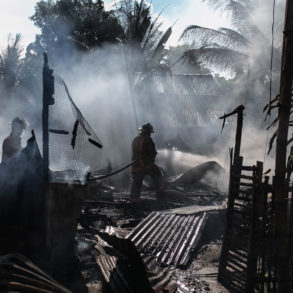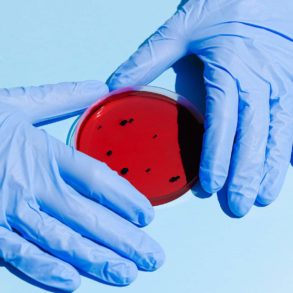In a TV interview broadcast on Wednesday, May 2, Zeman said that “Last year, in November, the A-230 chemical was tested at the Defense Ministry’s research institute in the City of Brno.” Photo: President of the Czech Republic Miloš Zeman // Source: Prague Castle, hrad.cz
Brno, May 4 (BD) – Citing information from the Czech Republic’s Military Intelligence agency (Vojenské zpravodajství), President Miloš Zeman has announced that A-230, a chemical said to be of the same class as that used in the Skripal poisonings in the UK in March, was tested at a facility in Brno as recently as November of last year.
This was in contrast to a report from the Security Information Service (Bezpečnostní informační služba) that stated that the Czech Republic did not have a history of production of the nerve agent used in the Salisbury attack, according to a report from Brněnský deník (4/5/2018).
In an interview on Prague’s Barrandov Television, Zeman said that “Last year, in November, the A-230 chemical was tested at the Defense Ministry’s research institute in the City of Brno. Its amount was insignificant. After the testing, it was [fully] destroyed,” reports Radio Free Europe/Radio Liberty.
Governments often do research on such chemical weapons in small amounts in order to have detection and treatment options available in the event of a chemical weapons attack.
According to a March 19 BBC article, A-230 is a chemical of the ‘Novichok’ class (Russian for ‘newcomer’ or ‘novice’). British authorities claim that Novichok was the nerve agent used in the Skripal poisonings, but it is unclear which variant of Novichok was used. Alexander Yakovenko, Russia’s ambassador to the UK, has suggested it was the A-234 variant.
Britain has accused Russia of being behind the March 4 poisoning, noting accusations made by Russian scientist Dr Vil Mirzayanov, who fled to the US in 1992 and accused Russia of developing Novichok, revealing the chemical formula to back up his claim.
The UK’s foreign office has also alleged that “within the last decade, Russia has investigated ways of delivering nerve agents likely for assassination,” and that “(p)art of this programme has involved producing and stockpiling quantities of novichok,” the BBC reported in the same article.
Russia, on the other hand, has never admitted to developing Novichok nerve agents.
According to a tweet by Zeman’s spokesperson quoted by Reuters, the inquiries were “a reaction to Russia’s repeated allegations against the Czech Republic” that the Novichok used in the attack could have been produced in the Czech Republic or other countries.
However, some media and politicians have accused Zeman of taking a pro-Russian stance on the matter.
Poisoned in Salisbury on March 4 of this year, Yulia Skripal was released from hospital in early April while Sergei Skripal was last reported by the BBC to be improving.
Get the news first! Subscribe to our daily newsletter here. Top stories of the day in your mailbox every morning.








